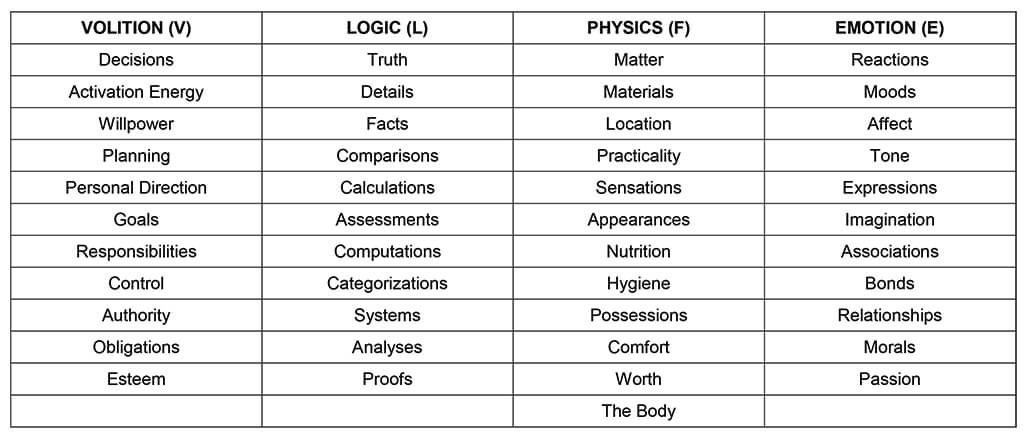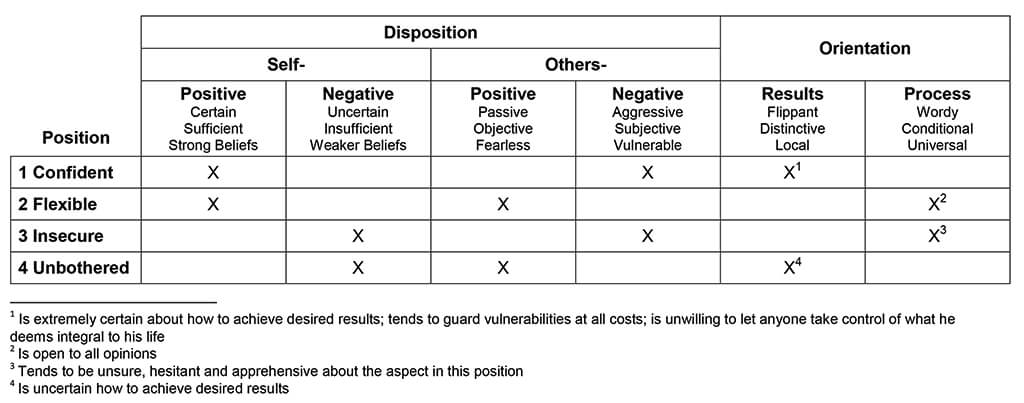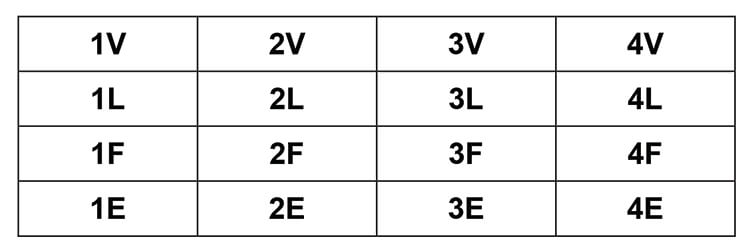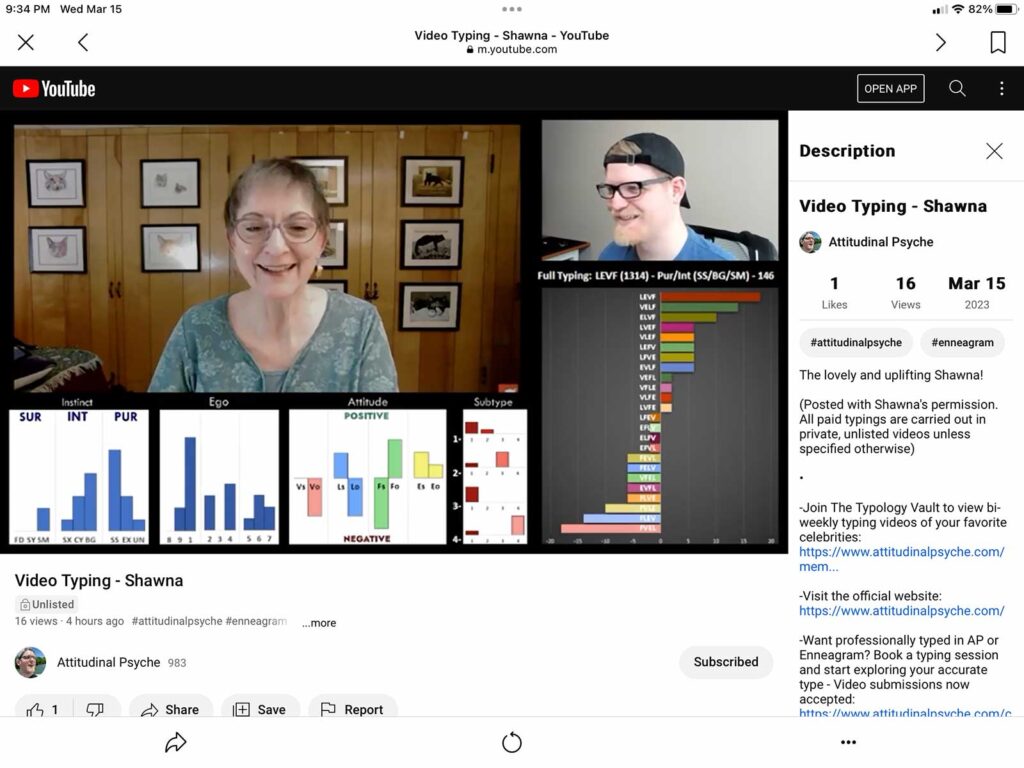Checking My Attitudinal Psyche
In my explorations of various systems of typology, I encountered a new one (to me) on Facebook. It is called Attitudinal Psyche and is the “brainchild” of Rob Zeke Collopy. The system and its components are described in depth on the Attitudinal Psyche website and discussed in the “Attitudinal Psyche” Facebook group, but I will summarize the basics here.
Theory
Aspects of Reality
Attitudinal Psyche identifies four main aspects of reality:

Positions
Attitudinal Psyche also identifies four positions, each expressing specific dispositions toward the self and others. Two of these disposition pairings have a results orientation (wanting to achieve desired results); the other two display a process orientation (wanting to engage in the journeys one desires while processing related information). These unite to form a holistic portrayal of the psyche.

Attitudes
When a specific aspect of reality is placed into one of the four positions, the result is an “attitude.” There are sixteen total attitudes in Attitudinal Psyche, which are the cornerstones of the personality types.

Types and Sextas
The attitudes can be combined to form any of twenty-four unique types. Furthermore, each type is part of a grouping of types that share the same orientation toward specific aspects of reality. These groups are called “sextas” and contain four types each.

Subtypes
Rob has recently been exploring variations that are evident within the types. These subtypes in Attitudinal Psyche are patterns of surface-level behaviors that give each attitude in one’s type a specific “flavor.” He notes that
Accentuation appears to be the most common subtype and the truest to the type on a descriptive level, as there are no variable strategies on the surface that oppose or manipulate what is happening at a deeper attitudinal level.
Rob Zeke Collopy, AttitudinalPsyche.com
Other subtypes vary, depending on the position occupied by the attitude.
Application
So where do I fit in this system of typology? Rob developed an online test, which has now been through at least six versions. I believe I have taken every version to date. My early results were not definitive. Am I ELVF, The Poet? EVLF, The Catalyst? VELF, The Campaigner? Or LEVF, The Visionary?
I also took a psychosophy test online. What is psychosophy? It is somewhat similar to Attitudinal Psyche.
Psychosophy (or psycheyoga) is a theory of personality created by a Russian writer A. Afanasyev in his book “The syntax of love”. There the author suggested that there’re 24 types of people. Each type has its own features and, according to a certain logic, interacts with other types, society, has certain habits. Thus, it’s possible to give recommendations about what is the best activity in his life, which people are convenient and he can trust them, which personal sides are strong or weak, etc.
Alexander Khlebushchev
My result was EWLP, or EVLF in Attitudinal Psyche.
Checking My Attitudinal Psyche Read More »
